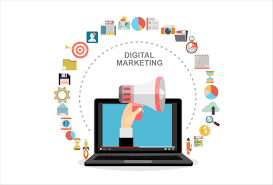Daniel Miller was interviewed by Adam C. Uzialko at Business News Daily.
The manufacturing industry is undergoing a dramatic shift centered around new technologies that offer the promise of greater efficiency, speed and higher quality. A central component of this shift toward Industry 4.0 is the internet of things (IoT), which serves as the frontline of data capture in the modern factory. What's more, this datacentric focus extends well beyond the shop floor; the entire supply chain is coming under the watchful eye of IoT-enabled devices.
What is IoT?
IoT broadly refers to a network of devices and sensors capable of capturing and communicating data with one another. The sensors in the system enable the collection of granular data, for example, from assets like machinery – energy consumption, heat levels, uptime/downtime – or the tracking of goods in transit.
"When it comes to supply and production, having internet-enabled production lines provides a direct line of information about the current supply and demand of any given product," said Robyn Edgar of the mobile software developer Hifyre. "It allows manufacturers to fine-tune their process by tapping into data-driven strategies."
Oftentimes, this data is made actionable by artificial intelligence. Machine learning algorithms comb through the collected data for anomalies to flag and returns notifications and recommendations to human decision-makers. Organization-wide data can also be transmitted to any mixed reality devices employees might be using, whether on the factory floor or in the warehouses.
IoT in the production process
The data capture enabled by IoT primarily drives greater overall efficiency by helping to optimize each phase of the production process. Whether it's general day-to-day operations, the health of machinery, or reducing energy consumption, information collected by IoT devices supports better decision-making and quick alerts when something is going wrong.
"There are certain limitations on the production capability of every manufacturing unit, but industries are continuously looking for growth and efficiency, which can be achieved by the implementation of IoT in the manufacturing facility," said Pankaj Kumar Raushan, lead analyst of smart manufacturing at MarketsandMarkets. "IoT helps in collecting all the relevant data from the very core of the machines, which further can be analyzed to find any gray areas in the system or any scope of improvement."
A major benefit of the bird's-eye view offered by IoT is preventative or predictive maintenance. For instance, when a machine uses excessive energy, overheats or begins severely vibrating, management can see this data and perform maintenance before a critical failure occurs.
IoT implementation also promises smart energy management. This type of system can identify waste and opportunities for improvement, reducing energy expenses and boosting efficiency in the production process.
"IoT can be implemented within the actual manufacturing equipment to create more efficient processes, [and] it will allow downloading updates to upgrade machinery on demand," said Daniel Miller, a tech and manufacturing recruiting specialist at Empowered Staffing. "We will see a realm of tech production that will be more efficient then we have ever seen before. [IoT] will create many wins for a multitude of manufacturing, construction, farming and technology sectors."
IoT-powered supply chains
IoT doesn't end at the manufacturing plant. The network of data capture and analysis can span the entire supply chain, from resource procurement through product refinement and tracking to notifying end users when a product needs maintenance or replacement.
Samantha Radocchia, co-founder and CMO of Chronicled, envisions a unified system where these oft-disparate parts of the process come together leveraging IoT and blockchain. One project Chronicled is working on with Responsible Gold aims to track gold production "from the mine to the vault."
"You can envision a world with more automated supply chain processes, using many sensors working together to trigger these events," Radocchia said. "For the first step, raw gold from the mine is placed in the container, which is sealed with a microchip. At that point, it's registered with a mobile device … and then at every point where it changes hand, every sensor is another signature."
Using blockchain enables more than just simple tracking, Radocchia said. Automatic triggers include transfer of custody and even release of payments in escrow accounts once products reach their intended destination.
When that destination is the final consumer, whether a business or an individual, IoT still has a role to play. For consumable products, companies can alert their customers when maintenance or replacement is needed, or even monitor for anomalies or problems.
"In the era of industrial IoT, exchange of information between supply chain and production is in real time," Kumar Raushan said. "For example … integration [of asset tracking] with IoT technologies will help in gathering a deeper level of information and probably alert the operator of areas of concern.
Integrating IoT with supply chain also helps in accurately determining the exact location and condition of the product, which helps in precise production planning, Kumar Raushan said. However, integration is only implemented in bits and pieces at this point, since it involves lots of infrastructure changes and cost.
Challenges and barriers
The cost of true, full scale IoT implementation is a major barrier to mass adoption. While companies are already starting to implement IoT systems, many are incomplete and will take some time to grow to the level of a truly comprehensive system. Still, according to the International Data Corporation (IDC), total IoT investment topped $800 billion in 2017, and the research organization anticipates growth eclipsing $1.4 trillion by 2021. However, as is often the case with emerging technologies, the cost of sensors is falling over time, making IoT a more accessible technology.
Another major barrier are "data silos." In short, this means a lack of interoperability, either due to technical challenges or an unwillingness on the part of companies to work together. Radocchia said combining IoT with blockchain can change this, without the need for companies to expose their proprietary information to one another.
"The challenge is most of that data is siloed," she said. "There's one sensor tracking packages, one tracking temperature, one verifying packages entering the warehouse; none of these devices are really able to talk to each other unless there's a direct integration through API. Without that central backbone, it's a challenge to see the world and supply chains work as efficiently as they could."
And finally, there's the elephant in the room: security. The IoT, by its very nature, means more devices connected to a network, offering potential attackers more entry points and increasing attack vectors. There's a lot manufacturers of IoT devices can do to improve the security situation, but maintaining best practices and establishing firm policies around security remains the responsibility of the company implementing the system.



















